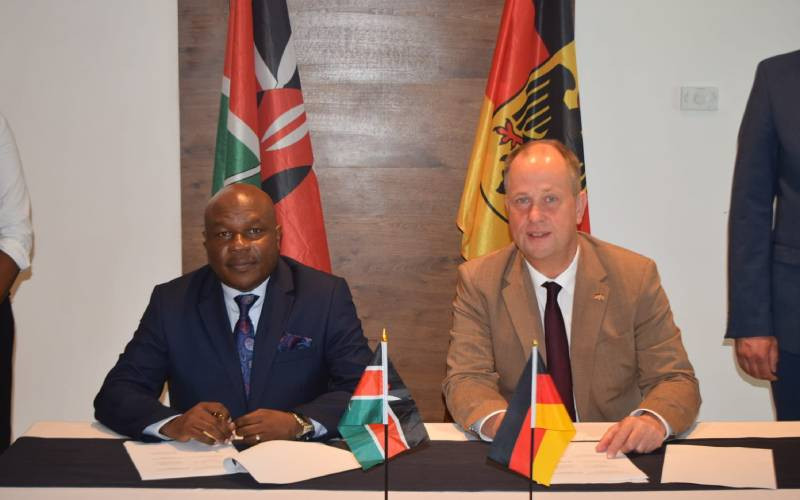×
The Standard e-Paper
Informed Minds Prefer The Standard

Audio By Vocalize

Kenya and Germany have successfully concluded the negotiations of the draft Comprehensive Migration and Mobility Partnership Agreement.
A deal that if signed will see streamlines in labour migration rules, opening the doors for employment opportunities for professional, skilled and semi-skilled workers in Germany was signed after negotiations took place in Nairobi on May 14 and 15.

